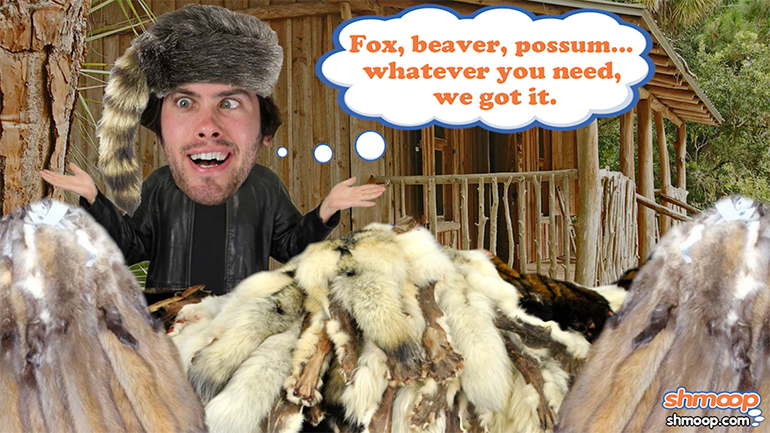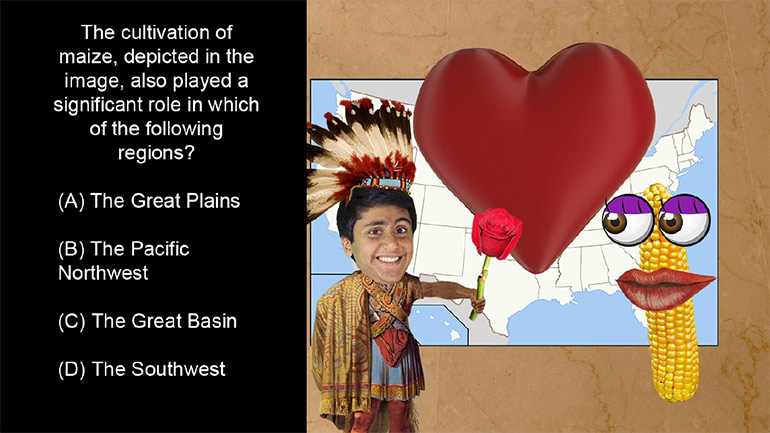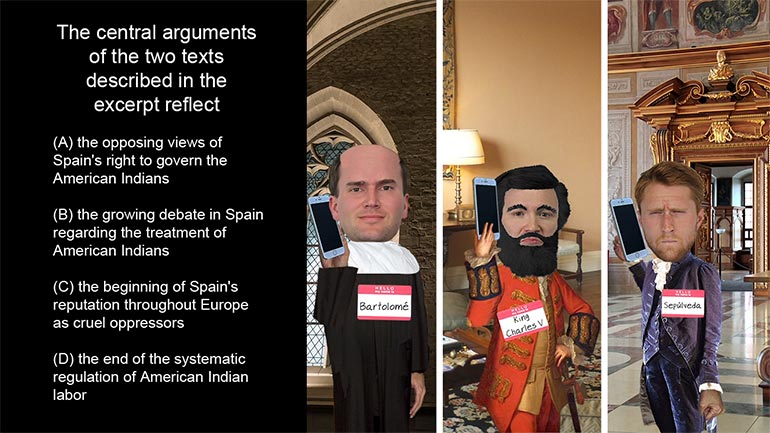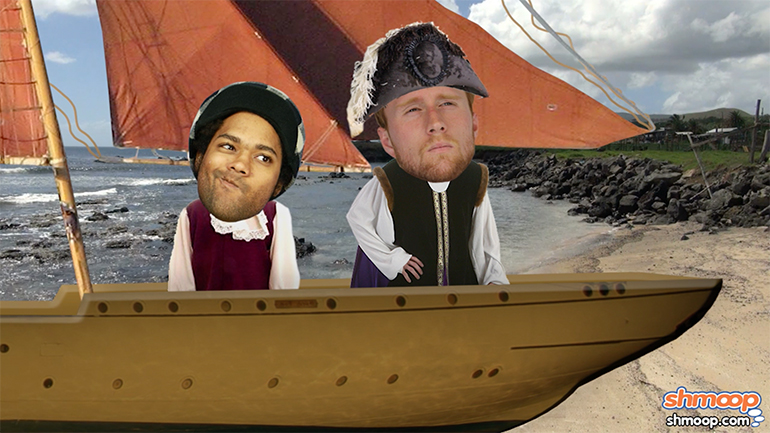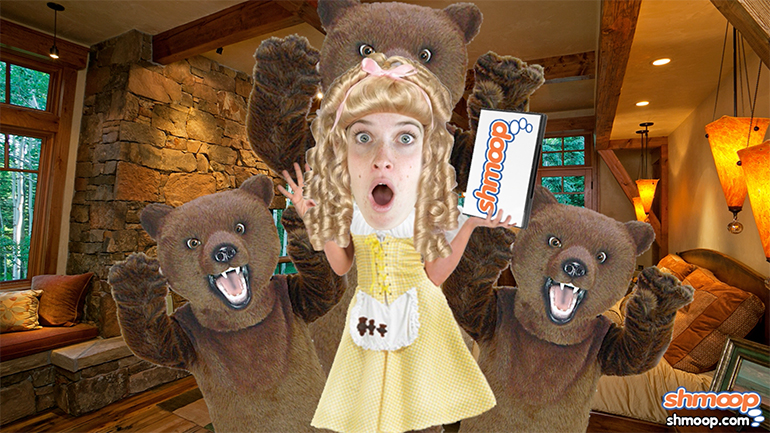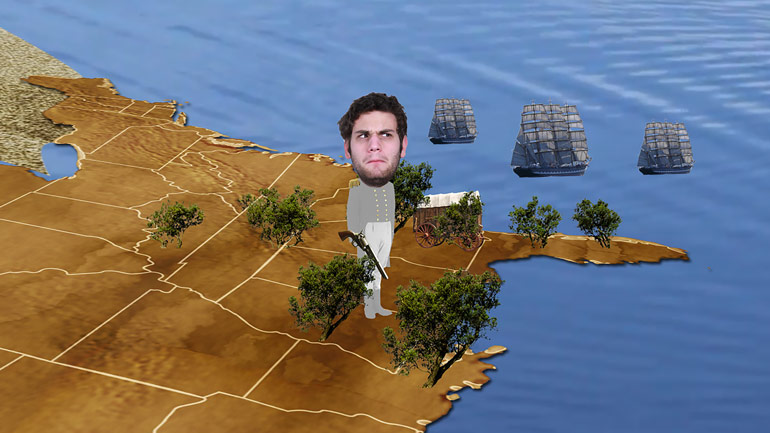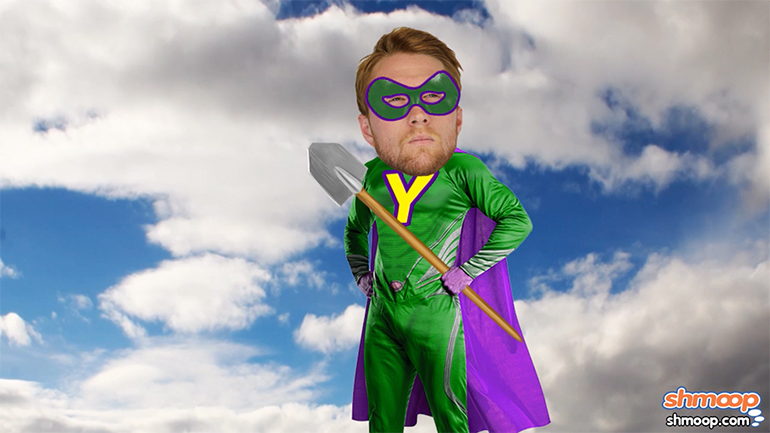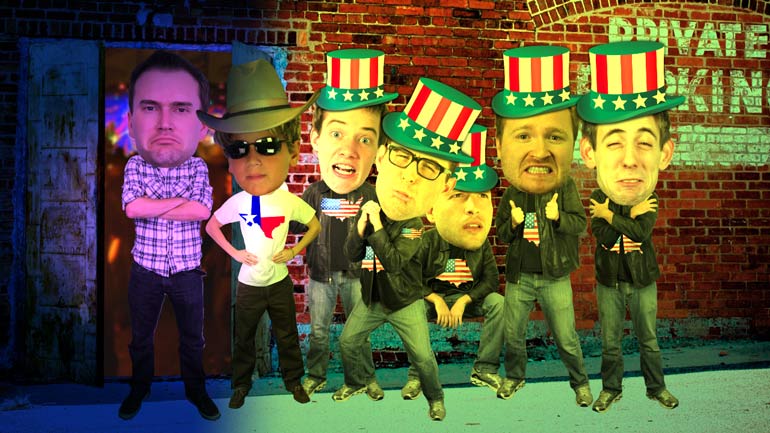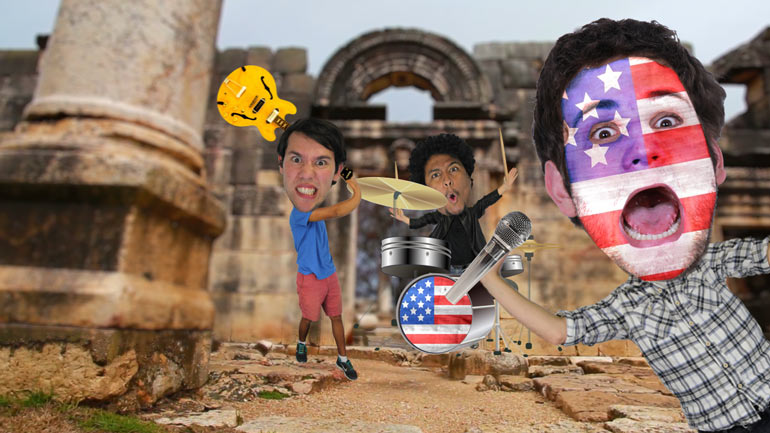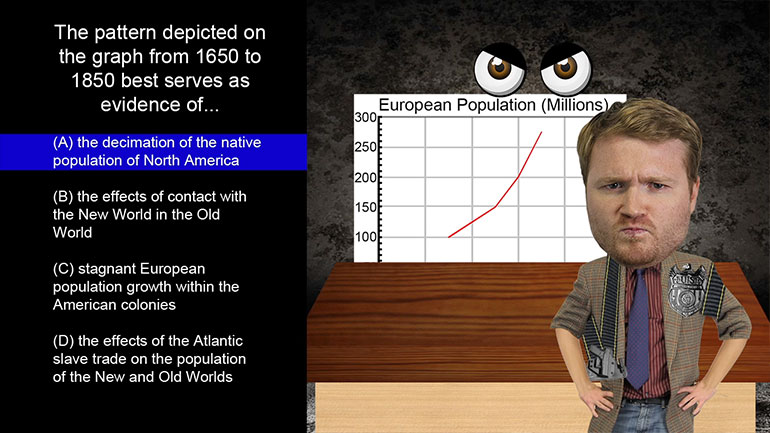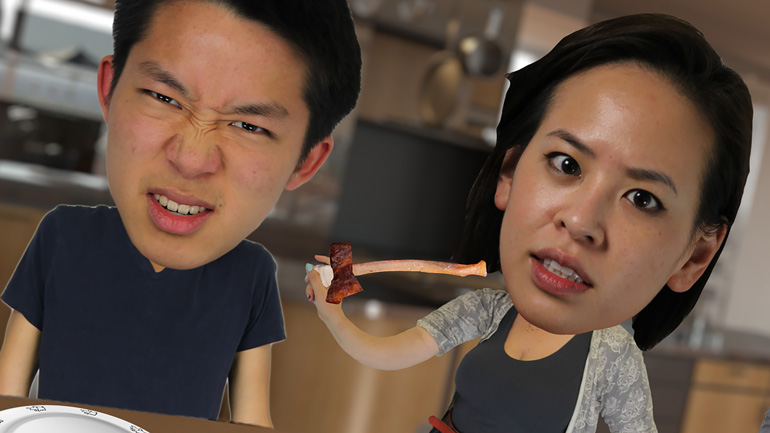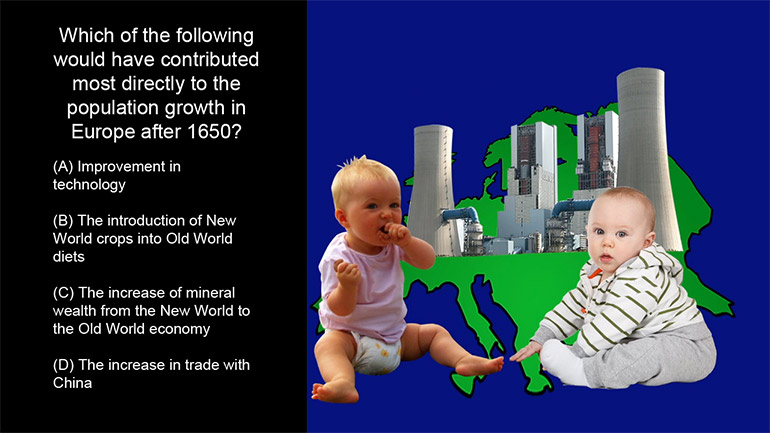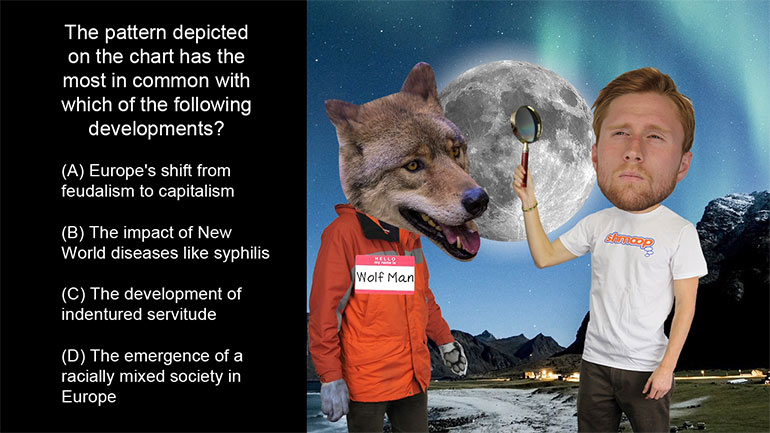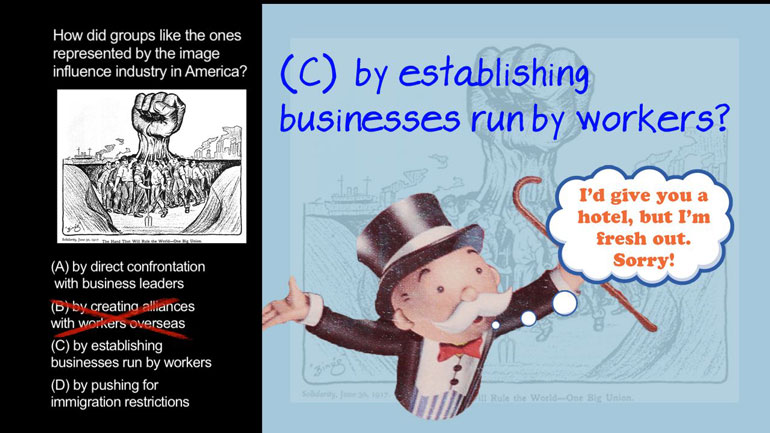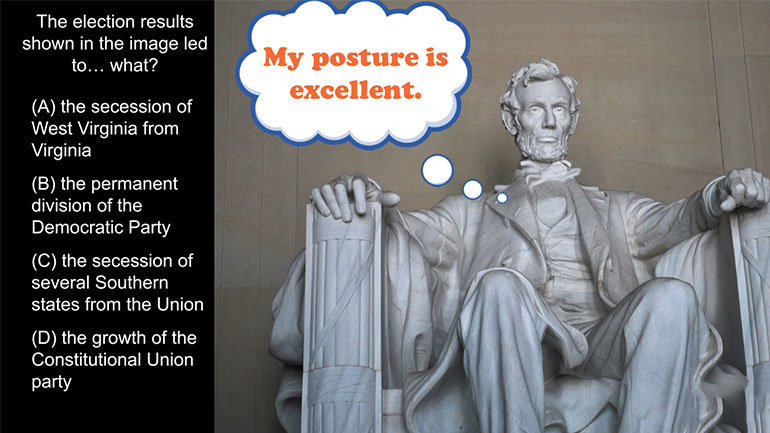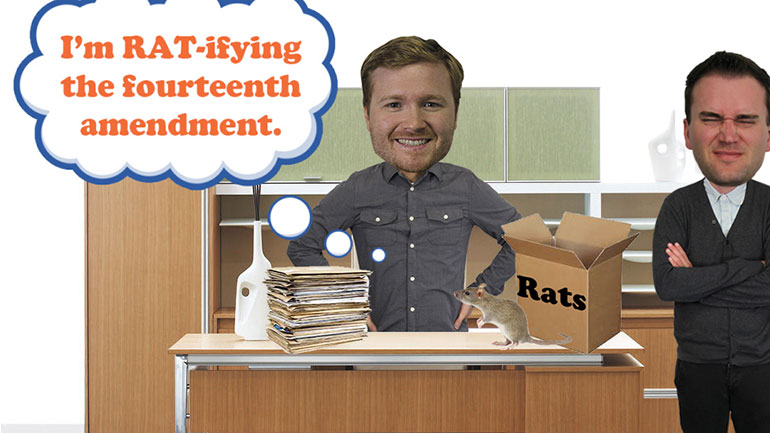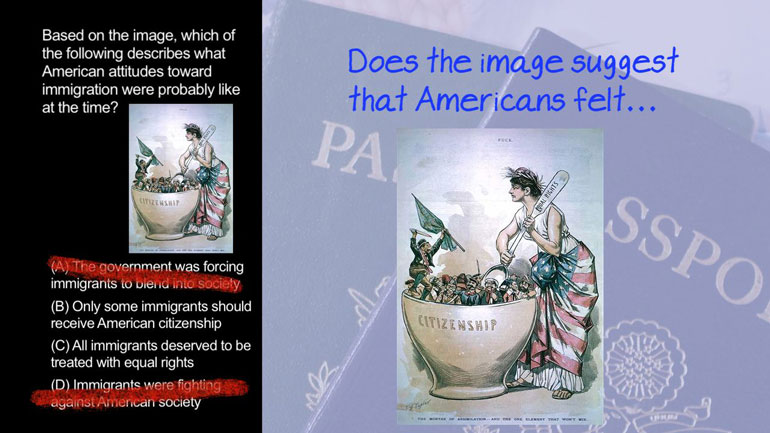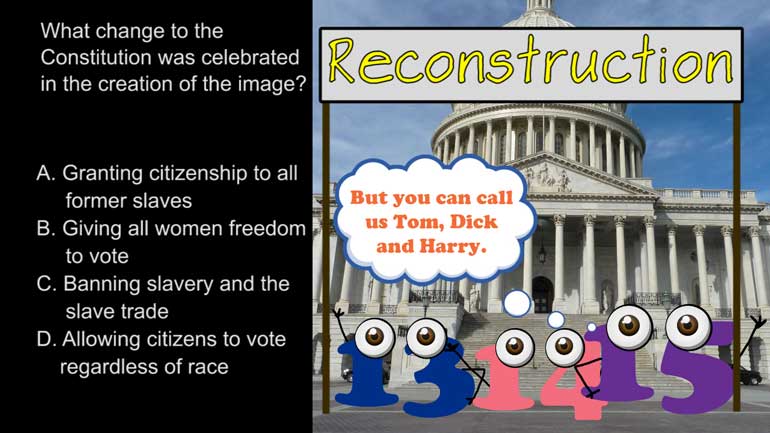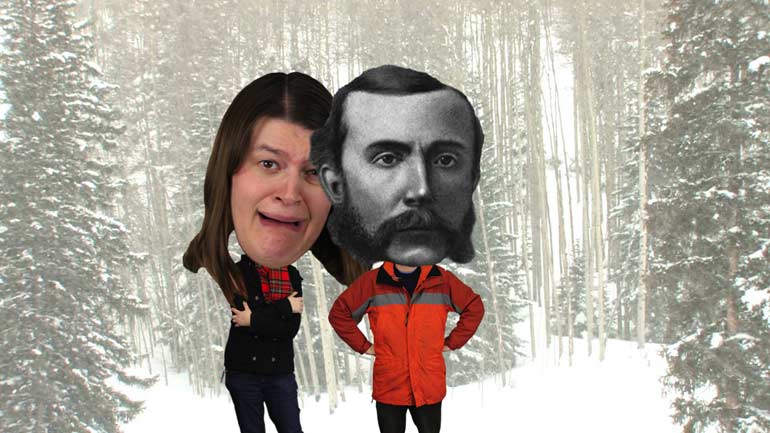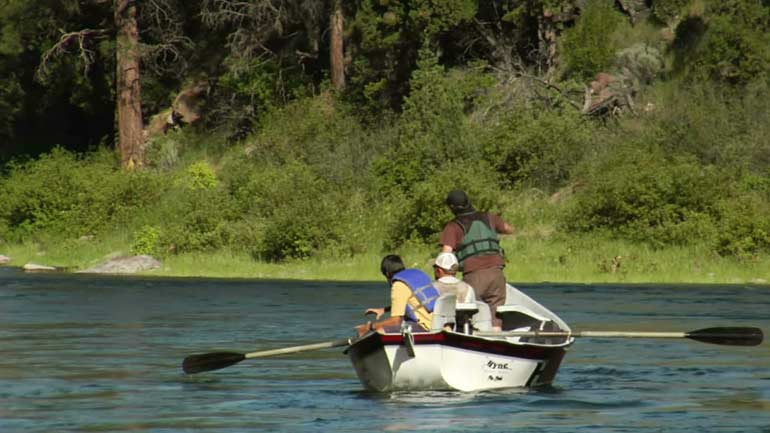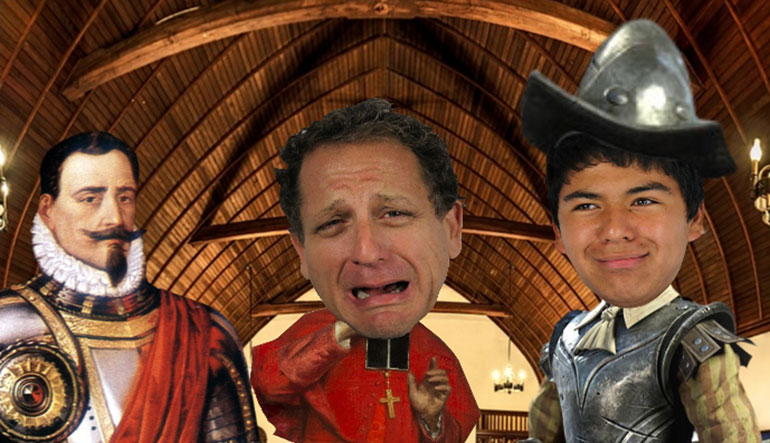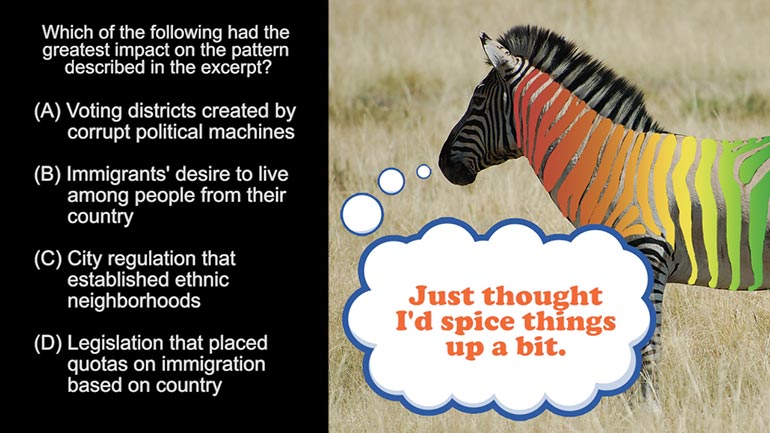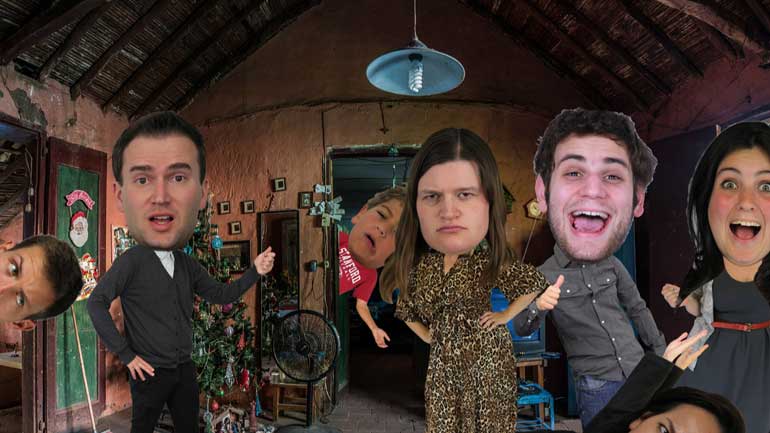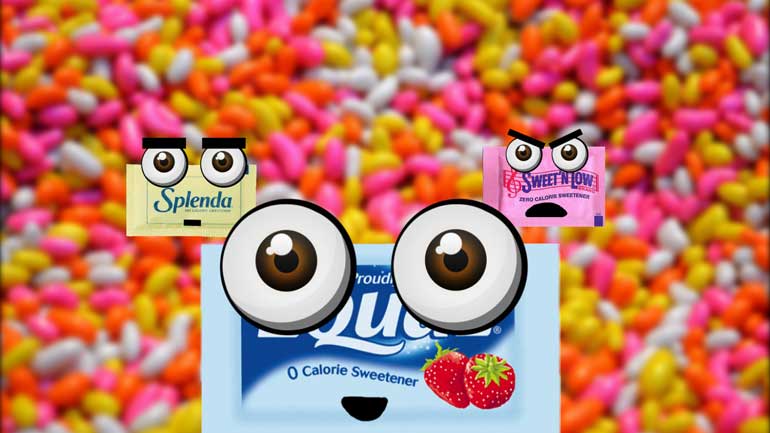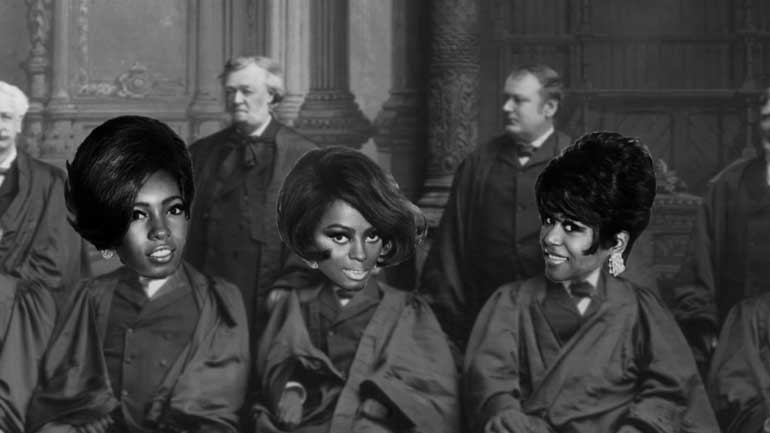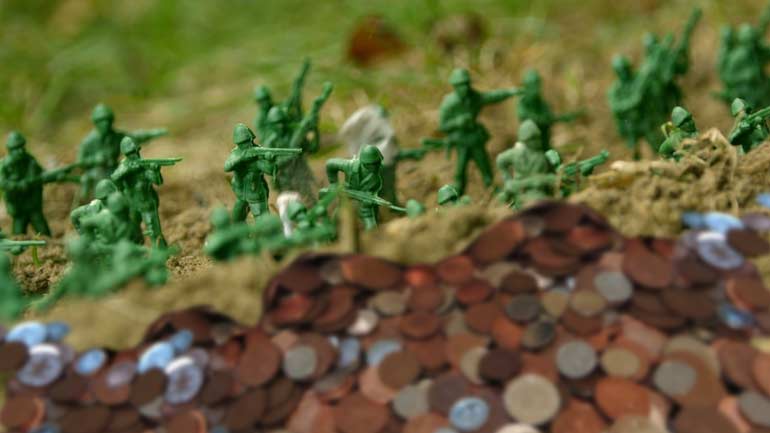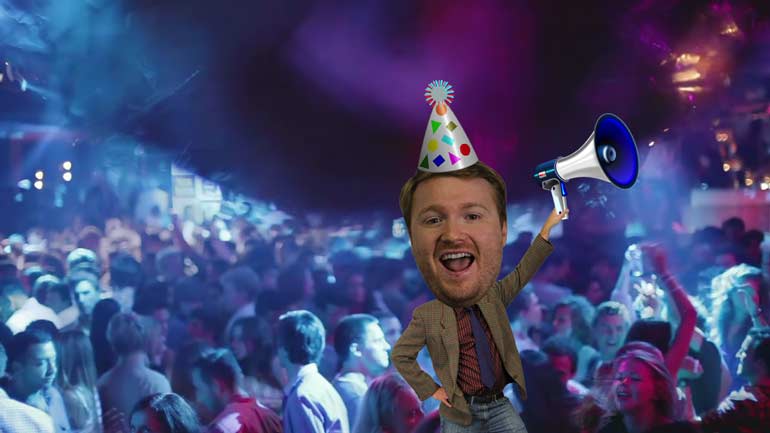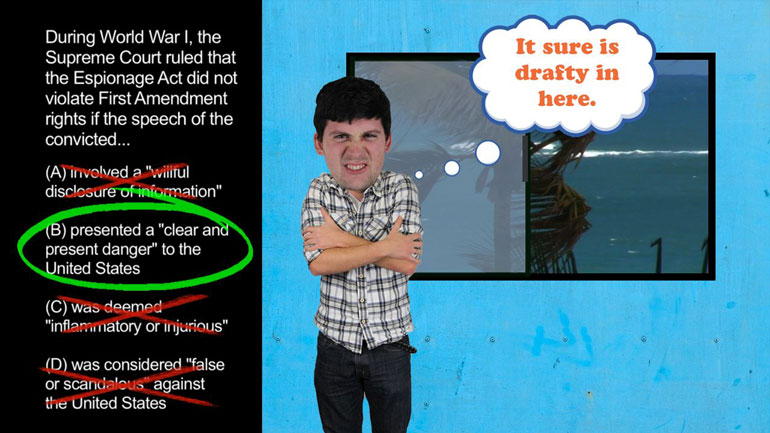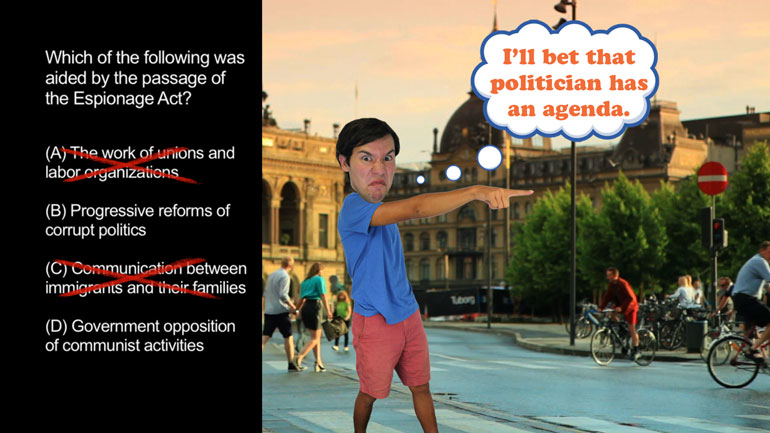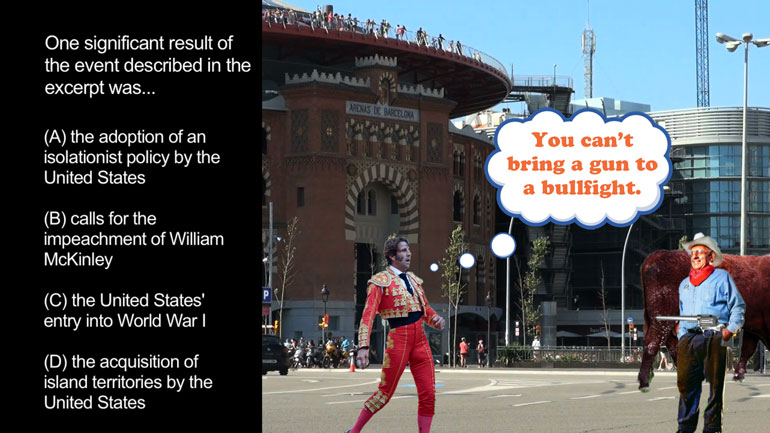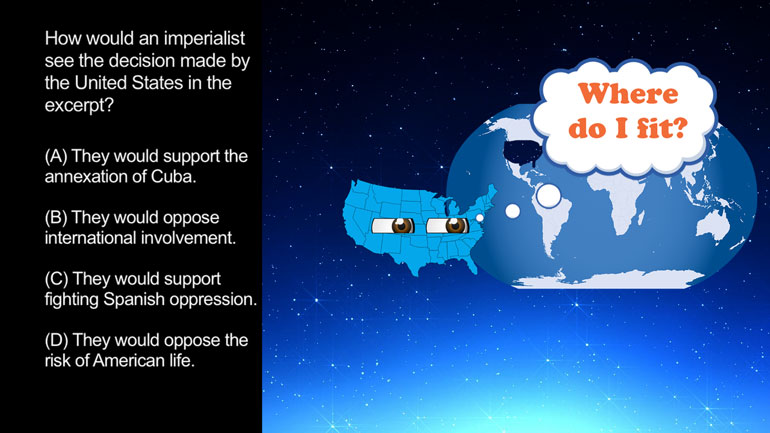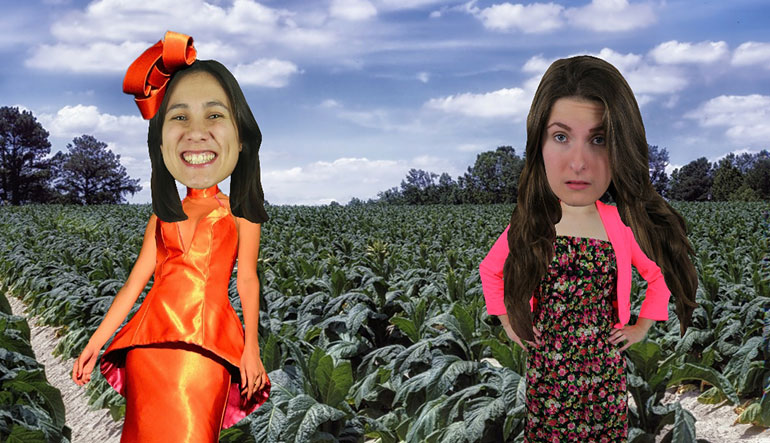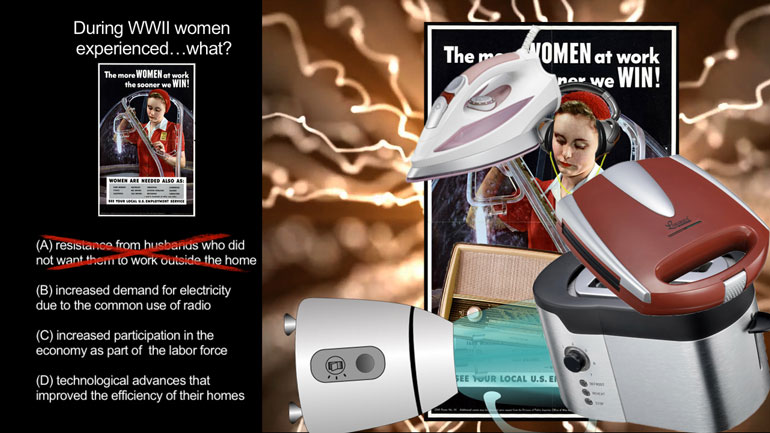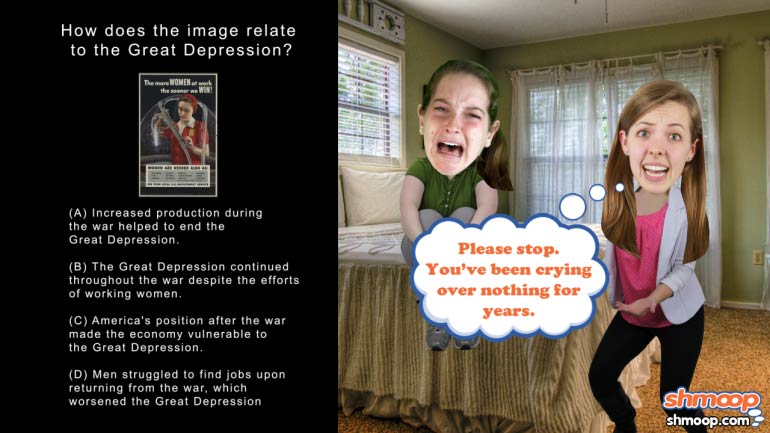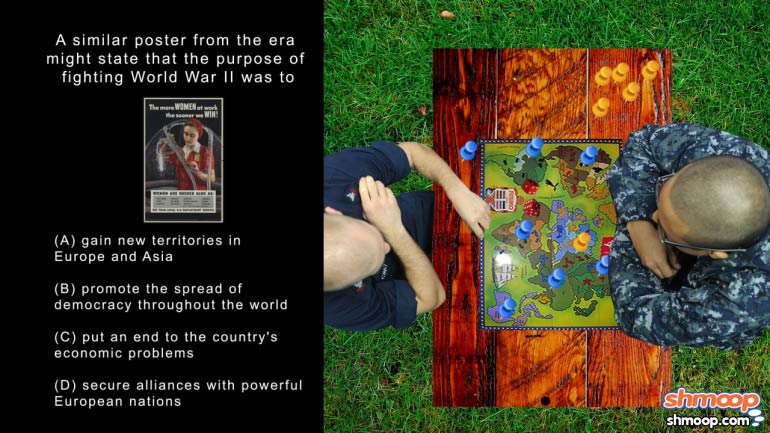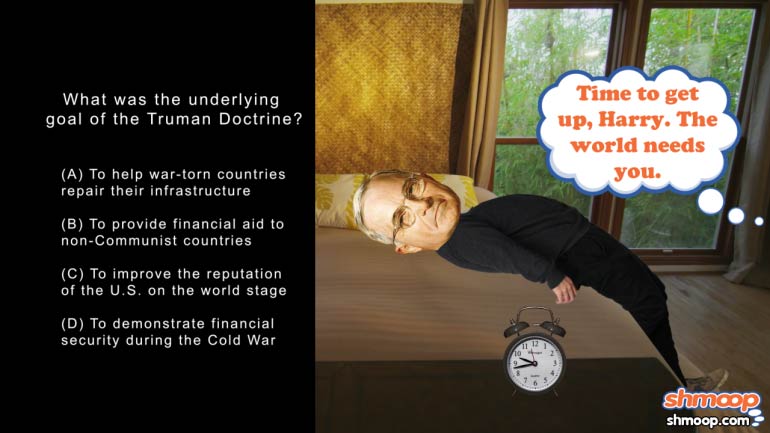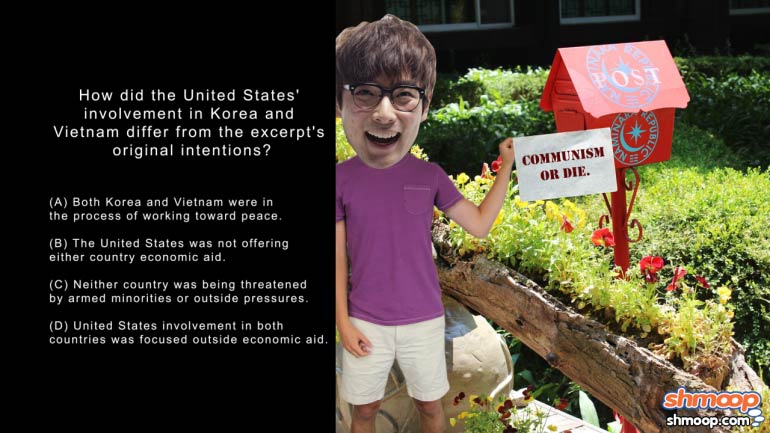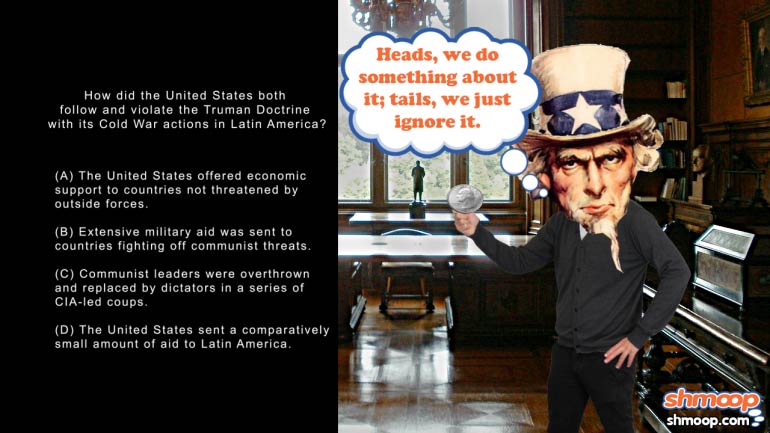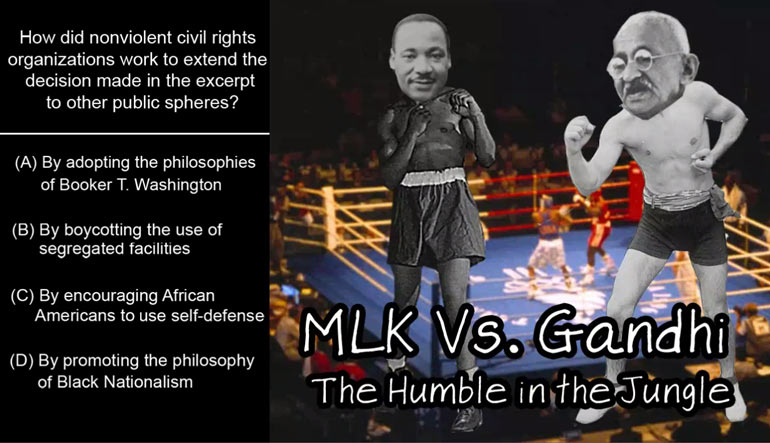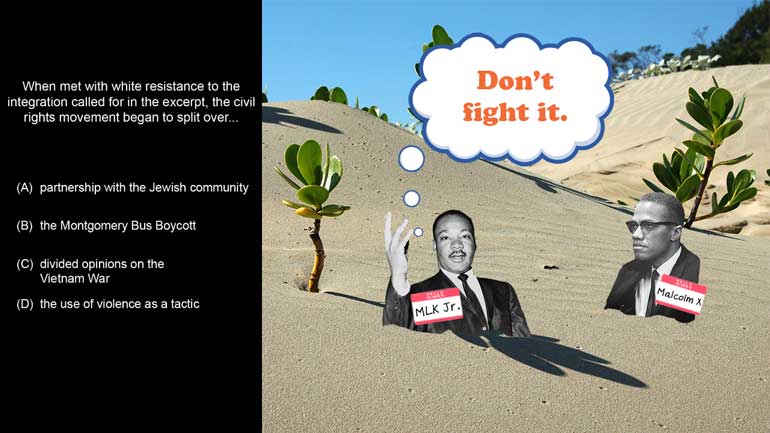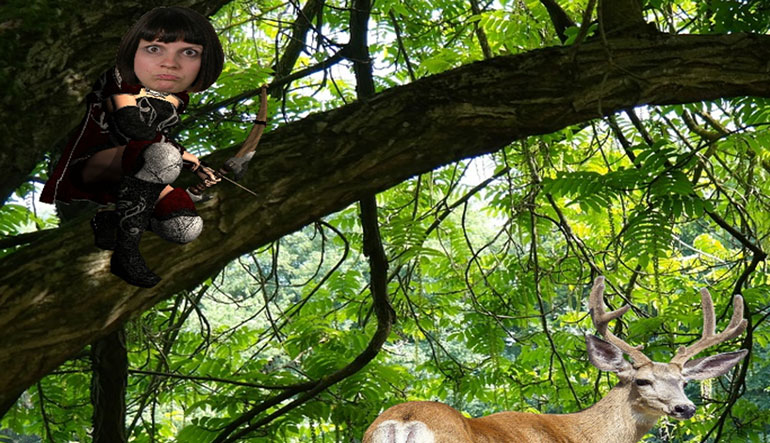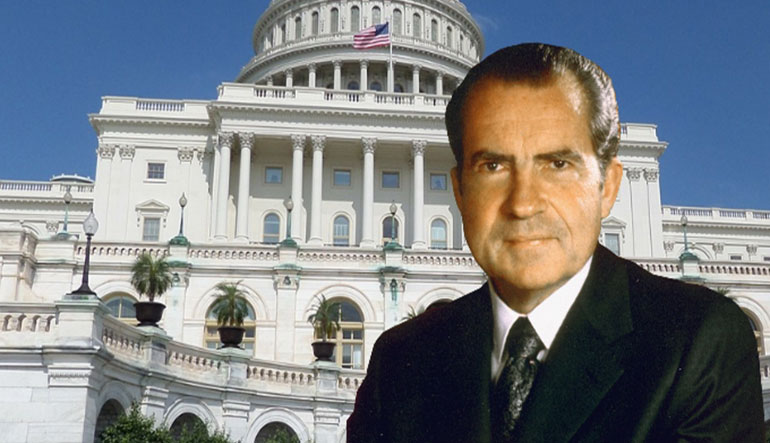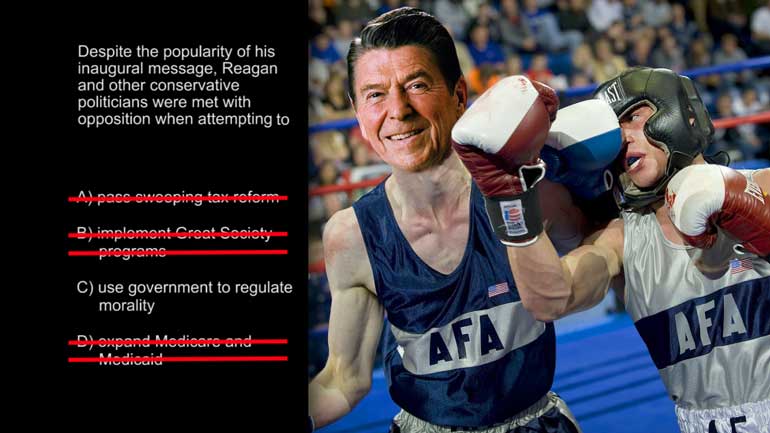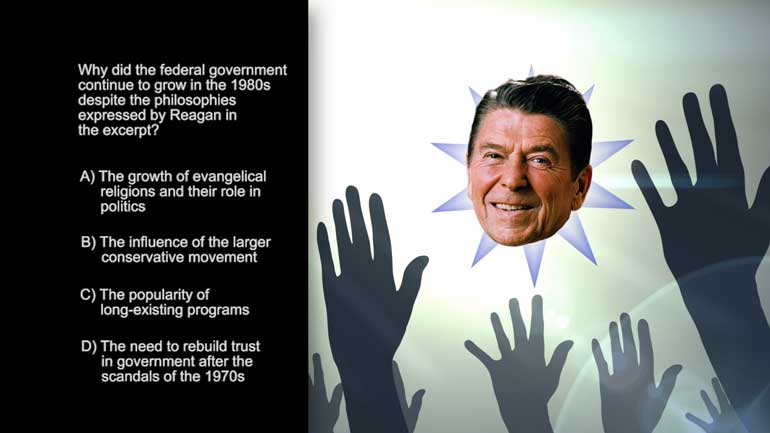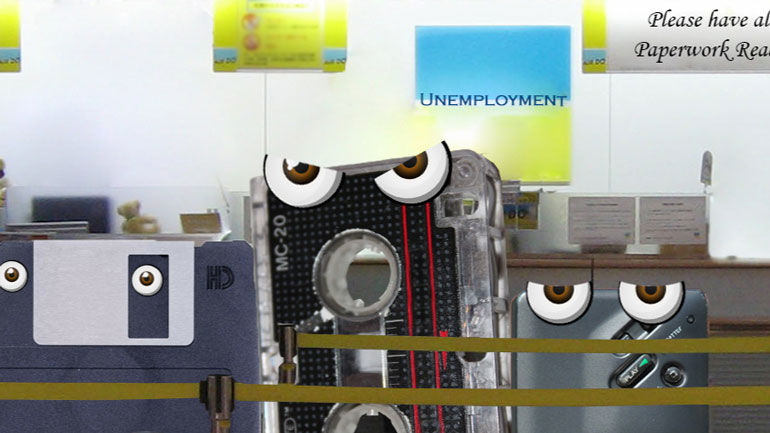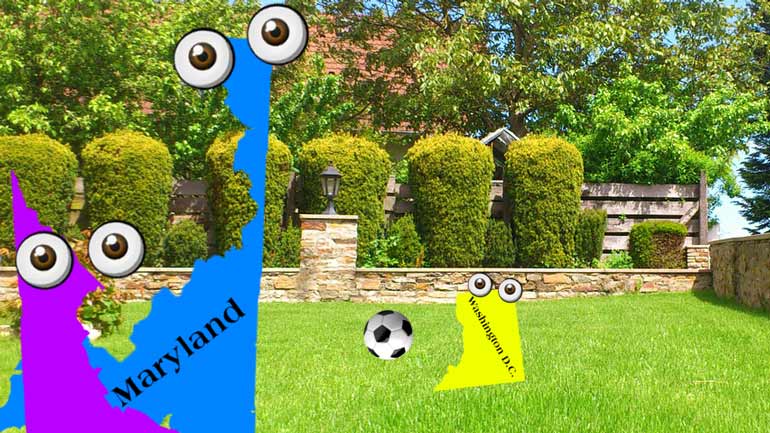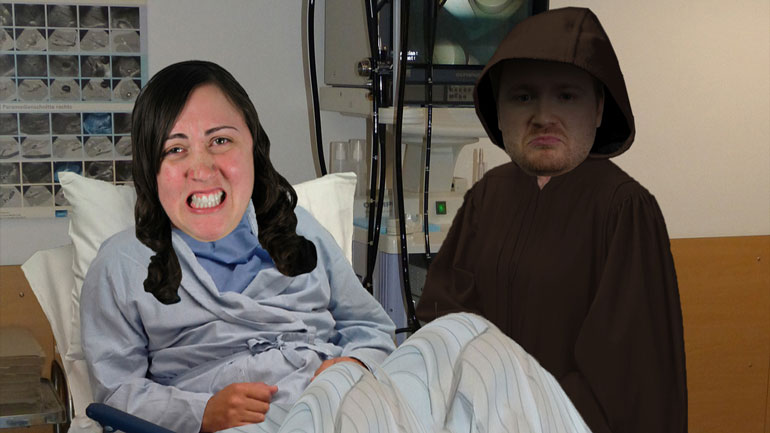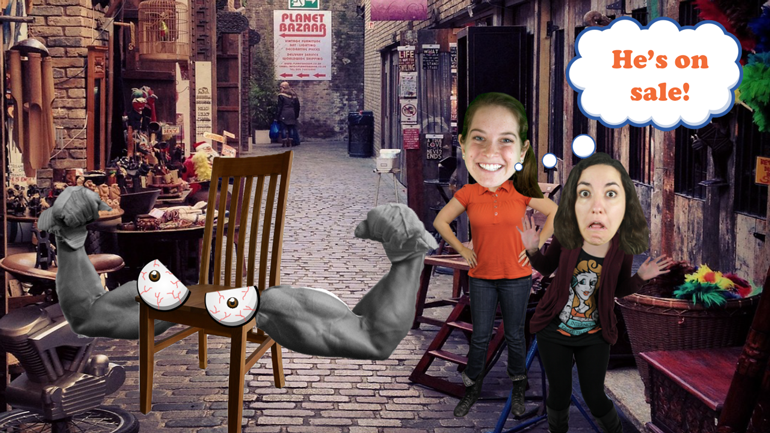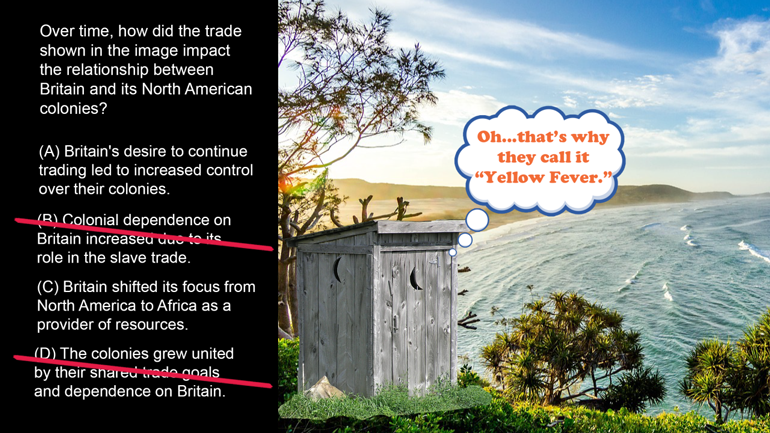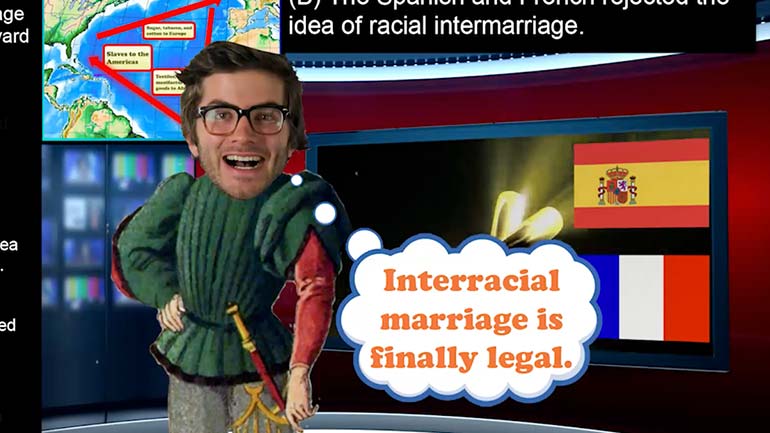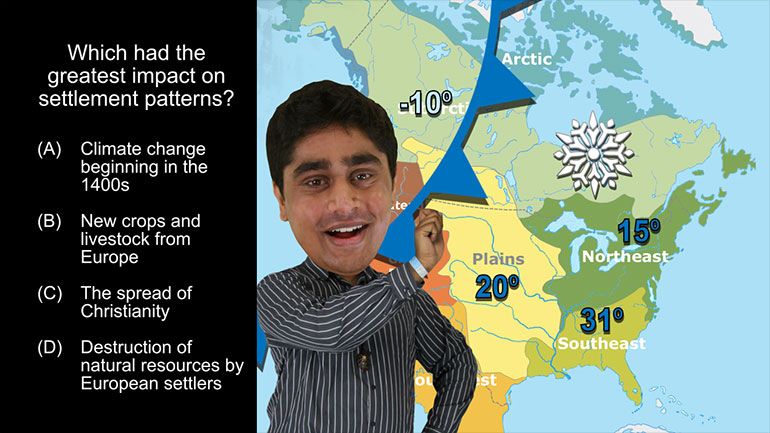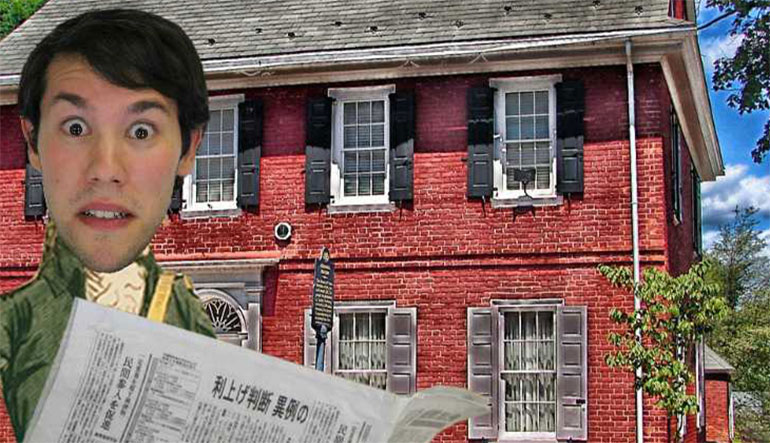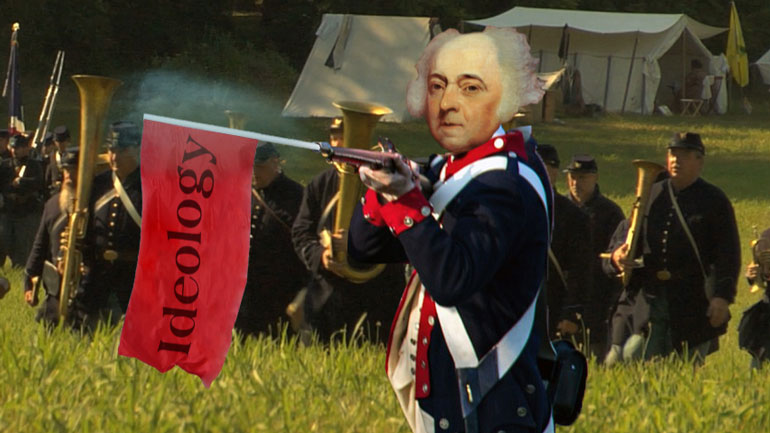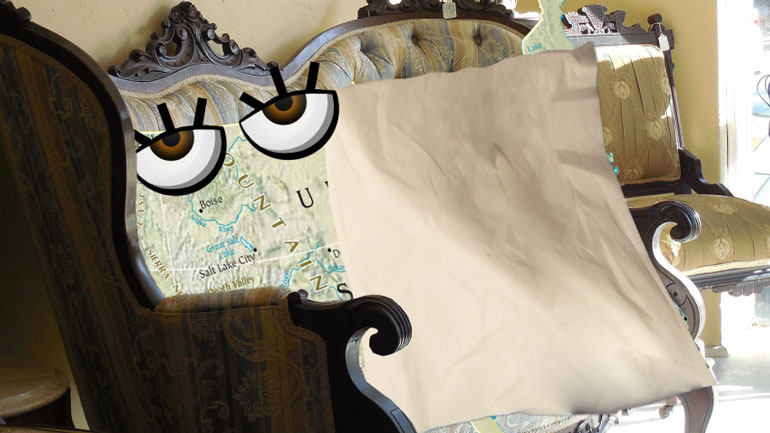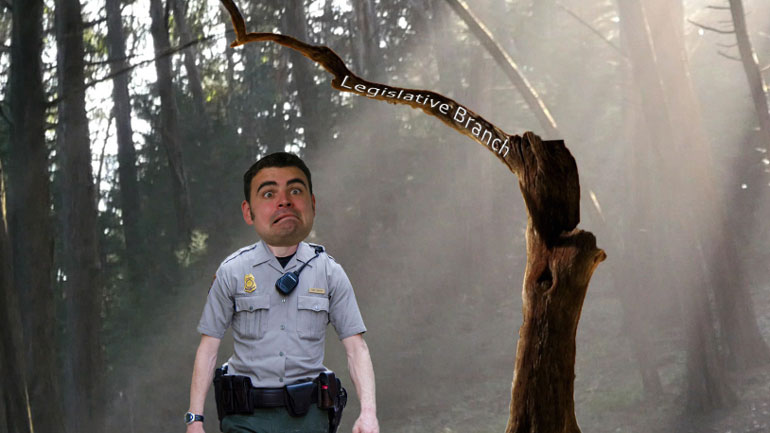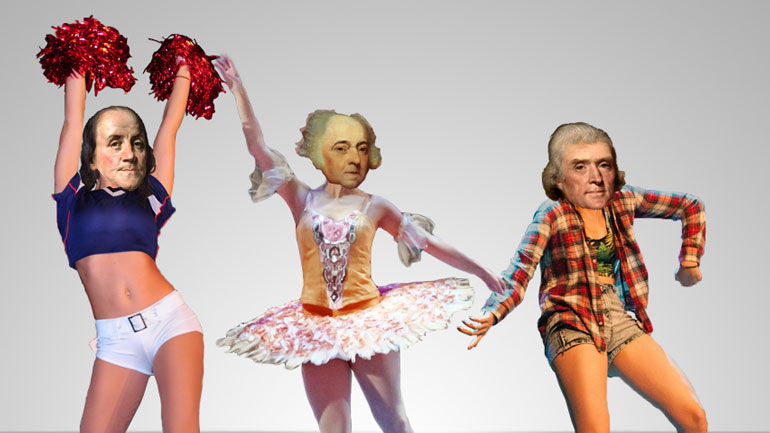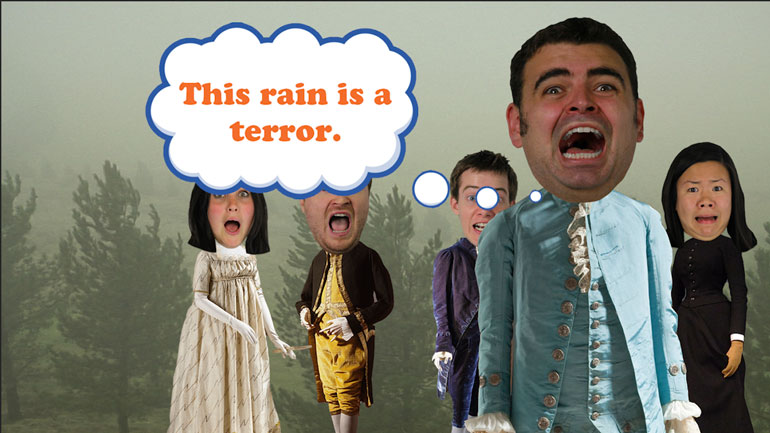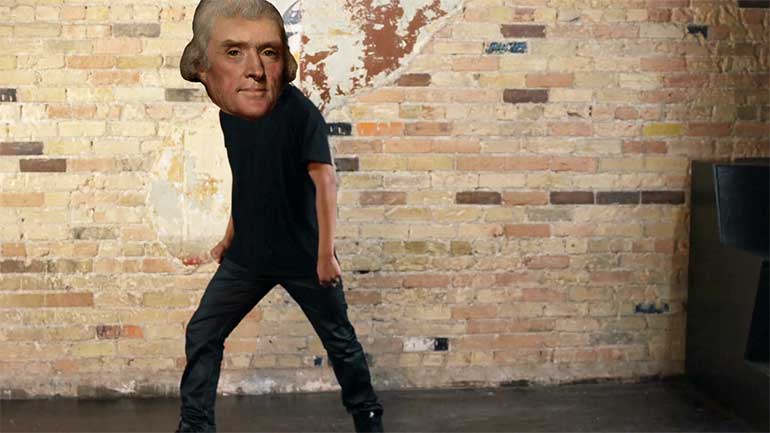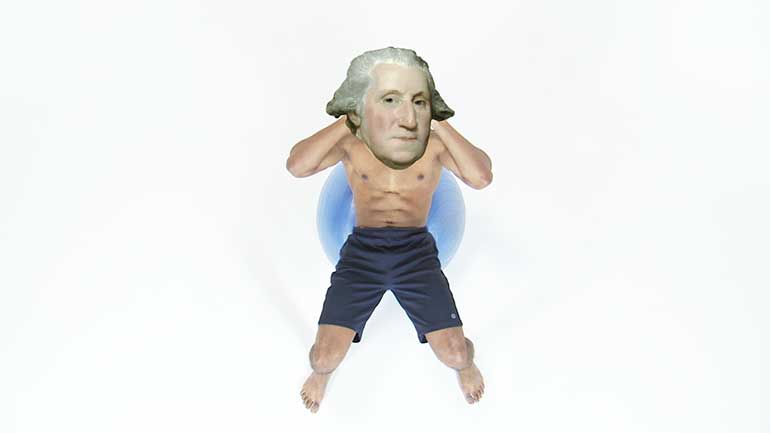ShmoopTube
Where Monty Python meets your 10th grade teacher.
Search Thousands of Shmoop Videos
AP U.S. History Videos 167 videos
AP U.S. History 3.1 Period 2: 1607-1754. Which of the following contributed most directly to the process seen in the image?
AP U.S. History Period 1: 1491-1607 Drill 3, Problem 2. The cultivation of maize, depicted in the image, also played a significant role in which of...
AP U.S. History 3.2 Period 4: 1800-1848. The goals presented in the excerpt have the most in common with which of the following?
AP U.S. History Exam 1.35 174 Views
Share It!
Description:
AP U.S. History Exam 1.35. Which of the following people would be most likely to expose the problems shown in the image?
Transcript
- 00:00
[ musical flourish ]
- 00:03
And here's your Shmoop du jour, brought to you by party bosses,
- 00:07
the kings of festivity and merriment.
- 00:10
Now which of the following people would be most likely to expose
- 00:12
the problems shown in the image right here?
Full Transcript
- 00:15
And here are your potential answers.
- 00:23
Well, much of the Progressive Era was focused on cleaning up
- 00:26
problems caused by the excesses of the Gilded Age,
- 00:29
such as the huge disparities of wealth
- 00:31
portrayed in the cartoon right here.
- 00:33
Would the type of person most likely to
- 00:35
expose these problems have been
- 00:37
A - a political party boss?
- 00:39
Unfortunately, party bosses, as well as wealthy philanthropists,
- 00:43
often acted like they were more concerned than they
- 00:45
really were. So you shouldn't count on A or D
- 00:48
to be your friend there.
- 00:49
Would these issues have been a major focus for C -
- 00:53
a local legislator?
- 00:55
Well, though local legislators might jump in to help,
- 00:58
they usually weren't the first ones to expose the problems.
- 01:00
So that covers up C, as well.
- 01:02
Which means the person most likely to expose
- 01:04
the problems shown in the image would have been B -
- 01:07
a muckraking journalist.
- 01:08
Well, muckraking journalists known for stirring up trouble
- 01:11
devoted to their careers to exposing corruption
- 01:14
and exploitation in various facets of society.
- 01:17
So B is the right answer.
- 01:19
The efforts of these journalists led to all kinds of reforms
- 01:22
including safer workplaces, higher wages,
- 01:24
and lower rent for the working class.
- 01:27
Talk about some great news for the people.
- 01:30
[ pouring liquid ]
Related Videos
Ever heard of a "living document"? They eat and breathe just like the rest of us! They even walk around on their own two legs. Okay, fine—maybe t...
If the Puritans had gotten their way, religion would play a much larger role in lawmaking these days. Want to know more? Watch the video for all th...
What happened between the creation of the Articles of Confederation and the ratification of the current U.S. Constitution? This video analyzes the...
The Modernists thought the world had a lot of problems, and they were intent on fixing them—or at least talking about fixing them. Unfortunately,...
This video explains Federalism and the quest for a fair balance between state and national power. It covers the progression and compromises of Fede...
